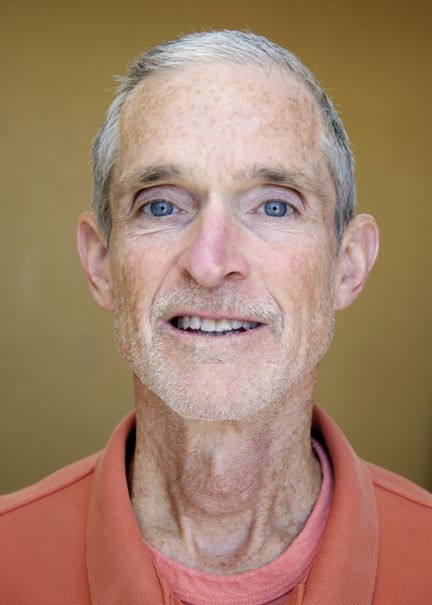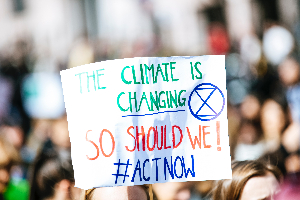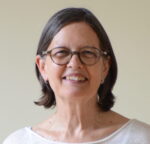It is time. It is past time. We are witnessing a myriad of overlapping world crises manifesting in destructive ways. We all, every one of us, need to take some form of action now. Our world is calling us to shift in a way we have never had to in our history.
Change and suffering, as we are taught in Yoga philosophy, are the nature of the world. As Sri Patanjali lays out in the Yoga Sutras, non-attachment and spiritual practice are the way forward. They help us to make the shifts that are necessary to pursue the spiritual path in the material world. They help us become grounded enough to see beyond the boundaries of our egos and a self-centered view of the world, and to experience a connection to all of Creation. These teachings are the bedrock of Yoga philosophy.
Our world is in crisis on so many different levels. To remain true to our foundation and the historical call of Yoga to be of service (think Swami Vivekananda, Gandhi, or more in the past, Kabir, Tulsidas, Mirabai), we need to rise and meet these challenges. We can be the example, the support, the agents of change to make the needed shifts in priorities in our communities in this time of crisis.
Integral Yoga International has been deeply reflecting on these issues and is beginning to make necessary changes to our organization to address equity and racism in our centers. We have increased the number of workshops led by people of color and have added more people of color to our administrative teams. We are offering workshops that help our predominantly white sangha explore ways to foster allyship with BIPOC. We now have our first BIPOC Basic Teacher Training class in progress. There is plenty more work to be done, but we are making strong efforts in this regard.
There is another very compelling and intersecting crisis that we as a community need to address. The climate emergency is spiraling, growing incrementally to threaten the very existence of our world. If we look at it full on, we know that it is causing suffering like no other we have seen. We have come to a point where we have to face the hopelessness, anxiety, grief, and frustration. We have to reflect on it individually and talk about it together to fully acknowledge it. And then we have to get up and act. What a blessing to have the tools of Yoga to help us act with discernment and compassion.
Krishna exhorts Arjuna in the Bhagavad Gita to face his destiny, his path, his dharma. That is exactly where we are in this moment – facing a challenge that is full of the unknown, of suffering, of the potential loss of life as we know it. We can turn our heads or we can face it full on and do everything we can to meet it, trying to mitigate the suffering with compassion and informed action to effect the needed changes.
Selfless action, or Karma Yoga, is done with no attachment to the outcome or personal motive. This means being willing to sacrifice our personal conveniences and desires for the sake of the greater good. But when we do serve with selfless hearts, blessings come. Our anxieties diminish as our sense of love and connection for our world is intensified. We can feel that we are aligning our lives with a Higher Will and acting in harmony with our values and the foundational teachings of Yoga.
We know many of you are making efforts to personally address the climate emergency. We can all do things like shift our consumption of resources, food, and energy. We can look at our day to day habits and find ways to use less water, recycle more and reduce our carbon footprint. That is a significant and responsible way to effect change.
We may think that our use of plastic bottles every day is not harmful, or if given up, will have no real effect. But will various companies continue to make plastic bottles for individual use if we are not buying them? We can make a difference with every choice we make, and it is empowering to know that, no matter how small an action, together we can lessen our negative imprint and help to restore our earth.
Here is a recent article with a remarkable tool to assess your food and energy consumption habits and footprint. It offers clear answers to how we can personally impact climate change. The authors describe this tool, saying, “To find out the climate impact of what you eat and drink, choose from one of the 34 items in our calculator and pick how often you have it.” It is as simple as that. It shows how each of us can directly express our concern and compassion for our fellow humans and our beautiful earth.
Along with this personal downsizing and care, societal policy changes are imperative. Most major corporations and our government have to change policies and practices to address the devastating impacts of overuse and disregard for environmental implications. Consumerism and the capitalistic practices that support an unsustainable lifestyle and bring harm to our earth have to be stopped. These policies and the needed changes seem out of our reach. But as Martin Luther King, Nelson Mandela, and John Lewis have demonstrated, nonattachment to our own selfish interests, selfless service, compassion, and connection can bring positive, needed change.
We are asking our international sangha to dedicate themselves to that right effort to find a path forward. We need to effect change on three levels: personal, within our communities, and on a more global level. All of us have different skill sets and interests. We can all contribute in some way, at some level. But it is past time for us to hope that we won’t have to make sacrifices, that we are too busy to think about it, or that someone else can come up with a plan of action.
We are each of us responsible. We are each of us talented. We are all so very blessed in this life to have found the teachings of Yoga. If we come together, our love and commitment to each other and the teachings can help us build and grow something beyond what we can do individually. We can harness our energies to grow a collective set of actions and practices to effect positive change.
We all must consider our own path to address this crisis. To prompt thinking and inspire action, we invite all our international sangha to save this date and join us on Saturday, November 20th from 11-12:30 pm PT for “The Climate Emergency: What We Can Do Now.” We will offer ideas, brainstorm, do some deep listening and pray in an effort to chart a path forward to address the climate crisis. Please join us.
Lokah Samastah Sukhino Bhavantu.
May the entire Universe be filled with Peace and Joy, Love and Light.
Sarani Fedman and Swami Ramananda
 Swami Ramananda is the Executive Director of the Integral Yoga Institute in San Francisco and a greatly respected senior teacher in the Integral Yoga tradition, who has been practicing Yoga for over 45 years. Ramananda offers practical methods of integrating the timeless teachings and practices of Yoga into daily life, and transforming the painful aspects of human experience into steps toward realizing one’s full potential.
Swami Ramananda is the Executive Director of the Integral Yoga Institute in San Francisco and a greatly respected senior teacher in the Integral Yoga tradition, who has been practicing Yoga for over 45 years. Ramananda offers practical methods of integrating the timeless teachings and practices of Yoga into daily life, and transforming the painful aspects of human experience into steps toward realizing one’s full potential.
He leads beginner, intermediate and advanced level Yoga teacher training programs in San Francisco, and offers a variety of programs in many locations in the U.S., Europe and South America. Ramananda co-developed the Stress Management Teacher Training program with Swami Vidyananda, has trained many teachers to bring Yoga into corporate, hospital and medical settings, and has taught mind/body wellness programs in many locations. He is a certified Yoga therapist and founding board member of the Yoga Alliance, a national registry that supports and promotes yoga teachers as professionals. He is a co-founder of The Spiritual Action Initiative (SAI) which brings together individuals committed to working for social justice for all beings and for the care and healing of our natural world. His warmth, wisdom and sense of humor have endeared him to many.
Sarani Beth Fedman has studied, practiced and taught yoga for over 20 years. Most of her teacher training was completed at Yogaville, Virginia, the home of Satchidananda Ashram. These teacher trainings through Integral Yoga include Basic and Intermediate Hatha, Prenatal and Postnatal, Meditation, Raja (Philosophy), Children’s and Special Needs Yoga, Restorative, Reducing Anxiety, Accessible and Therapeutic Yoga. She has also studied Mindfulness Yoga with Frank Jude Boccio and Buddhist Meditation with Thich Nhat Hanh, Sharon Salzberg, and Joseph Goldstein. Her approach is inclusive and adaptive with the understanding that everyone can benefit from the practices and teachings of the ancient wisdom of yoga. Each of her therapeutic students receives support through an individualized practice plan with the goal to reduce stress and discomfort and promote healing and a deep sense of well being. She has received her yoga teacher certification from Yoga Alliance at the RYT500 level and is a certified yoga therapist through the International Association of Yoga Therapists.


